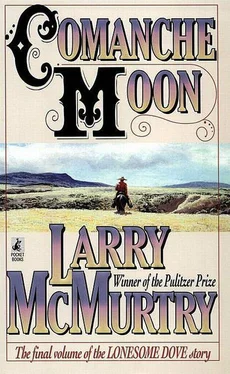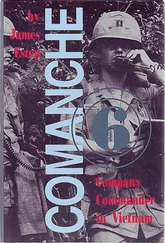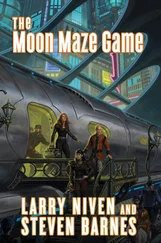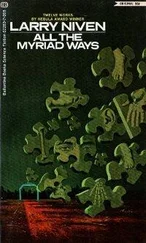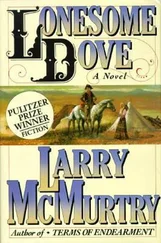"I was sent, sir--sent by the generals," Colonel Soult said. "You did leave the front rather quickly, once the peace was settled." "True, I'm not a man to wait," Scull said. "The fighting was over--the details can be left to the clerks. I had a book to write, as you can see--a book on the eyelid, a neglected subject. Until I lost my own I didn't realize how neglected. I was eager to get to it--st am. I hope you've not come all this way to try and pull me away from my researches, Colonel Soult." "Well, I .was sent by the generals," Colonel Soult admitted. "They believe you're the man to take the West--I believe that's the general view." The Colonel was almost stuttering in his anxiety.
"Take the West? Take it where?" Scull asked.
"What I meant to say was, administer it," the Colonel said. "General Grant and General Sherman, they're of the view that you're the man to do it." "What did General Sherman think about this scheme?" Scull inquired. He knew that the rough Sherman was not likely to sponsor or support his candidacy for such an important post.
"Don't know that Sherman was consulted," the Colonel admitted. "If you won't take the West, would you at least take Texas? The savages there require a firm hand and the border is not entirely pacified, if reports are to be believed." "No, the savages in Texas are broken," Scull said firmly. "I don't doubt that there are a few free remnants, but they won't last long. As for the border, my view is that we should never have bothered stealing it from Mexico in the first place. It's only thorn and mesquite anyway." He let that opinion sink in and then pointed his thick blinders directly at the quaking colonel and let fly.
"You're a poor specimen of colonel, Sam Soult," Scull said. "First you offer me the West and then you reduce me to Texas before I even refused the first offer. All I did was inquire about General Sherman's opinion, which you evidently can't provide." "Oh, beg pardon, General--I suppose I'm not used to this sweet coffee," the Colonel said, aghast at the blunder he had just committed.
"Your tone when I offered the West was not encouraging --of course, if you would take the whole West, the generals would be delighted." "No sir, I pass," Scull said. "Let General Sherman run the West. I expect the Sioux and the Cheyenne will lead him on a merry chase for a few more years." "I don't believe he wants it either," the Colonel said, with a droop in his tone.
"General Sherman has not declared his intentions." "If Sherman won't take it, give to whoever you want," Scull said. "I doubt the northern tribes will last ten years, if they last that long." "But General, what about Texas?" the lugubrious colonel asked. "We have no one to send. The President was particularly hopeful that you'd take Texas." Inish Scull clicked his lenses a few times, until he came to the last lens, the one that shut out all light, and insured perfect darkness.
Behind his black lens he could no longer see the Colonel, which was how he preferred it. He wanted to think for a few minutes. Inez hated the black lens; she knew he could click the black lens and make her vanish from view.
But Colonel Soult was not in on the secret; he didn't know that he had just vanished from view.
All he could tell was that Blinders Scull, victor in fifteen engagements with the Rebs, was staring at him from behind the very blinders that had produced his nickname.
It made Colonel Soult distinctly uncomfortable, but no more uncomfortable, he felt sure, than having to journey back to Washington with the news that Scull had refused everything. The refusal would undoubtedly be taken as the result of his own inadequate diplomacy; he was unhappily aware that he had blundered by offering General Scull Texas before he had quite refused the whole West. If ^w of that misspeaking leaked out, the Colonel knew that his own next posting was not likely to be one that would appeal to Mrs.
Soult; if it happened to be west of Ohio, Mrs. Soult would be disturbed, it being her firm belief that Ohio was the westernmost point at which a civilized existence could be sustained. She had heard once of a frontiersman who, faced with a howling blizzard, had actually torn pages out of one of Mrs. Browning's books in order to start a fire; Mrs. Soult herself wrote a little poetry, mostly of a devotional nature--the report of the frontiersman and the fire struck her as evidence enough that, beyond Ohio, there was only barbarism and blizzards.
General Scull, secure behind his blinders, was reflecting on the fact that he had abruptly stopped hopping during the siege of Viicksburg. The flea malady, as he called it, that had seized him while in Ahumado's pit had left him because of a particularly loud cannon blast one gray morning in Mississippi. He had been hopping uncontrollably, to the bewilderment of his troops, when the cannon boomed in his ear; since then he had not indulged in a single hop.
Now he had been offered the West, land of distances and sky, the place where the last unpacified aboriginal people dwelled. He had been at a conclave once attended by a few Cheyenne and thought he had never seen a handsomer people.
The necessity of blasting and starving them into line with territorial policy did not appeal to him. It was a job he could happily refuse.
When he remembered Texas, though, he found himself unable to be quite so immediate or so categorical in his refusal. He had enjoyed tramping the plains at the head of his ranger troop--it beat mowing down his cousins from the Carolinas, or Inez's cousins from Georgia. He remembered his sharp engagements with Buffalo Hump, an enemy he had never even really seen, at close range. He remembered the daring thievery of Kicking Wolf, and the loquacity of the tracker Famous Shoes. In particular Scull remembered Ahumado, the Black Vaquero, the pit, the cages, the raw pigeons, and the blistering his brain suffered once the old Mayan had taken off his eyelids.
His friend Freddie Catherwood and his companion Johnnie Stephens had regaled him several times with tales of Chiapas and the Yucatan.
Catherwood had even given him a portfolio of drawings of lost temples in the Yucatan, made on his last journey with Johnnie Stephens.
Ahumado, he recalled, had been a man of the south, of the very regions Catherwood and Stephens had explored. Scull felt he might go someday and see the jungles and the temples, the place that had spawned his shrewdest foe.
But Ahumado, if alive, was in Mexico, whereas Texas was the theater he was being offered. He wondered which of the men he had once led were still alive, and whether Buffalo Hump still held the great Palo Duro Canyon. Scull had kept up, as best he could, with the battle reports from Texas, but it had been years since he had seen Buffalo Hump's name mentioned in connection with a raid. Like most great chiefs, his name had simply dropped from history, once he grew old.
It occurred to him, as he hid behind his blinders, that the one good reason for going back to Texas was Inez. Since there was no way to control her it was no doubt better to turn her loose on a frontier than in the somber streets of Boston.
The cattle business was booming, from what he could read. With cowboys and cattle barons to amuse her Inez might be content, for a year or two.
But Inez was in Cuba, mistress now to the greatest plantation on the island. There was no telling when or if she would return, and, in any case, experience persuaded him that it was seldom wise to return to a theater he had left. There were far too many places in the world that he hadn't seen to waste his years revisiting those he had already been to. Johnnie Stephens had been to Persia and was enthusiastic about it, going on and on about the blue mosques and the long light.
Then there was the impediment of his book. All during the war sentences and paragraphs had boiled up in his brain; he had scribbled them down on every imaginable article, including, on occasion, his saddlebags. He had worn out a whole set of Pickering's excellent little Diamond Classics, thumbing through them during intervals in battle for chance references to eyelids.
Читать дальше
